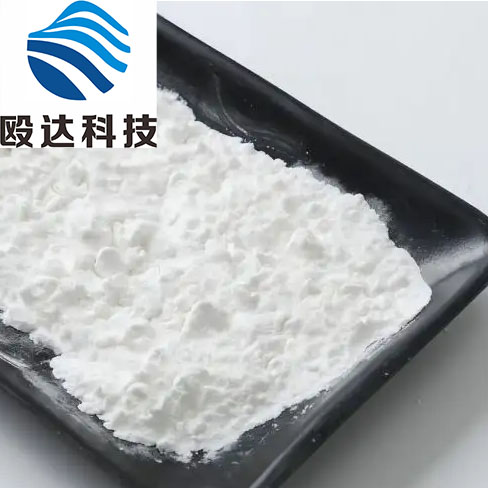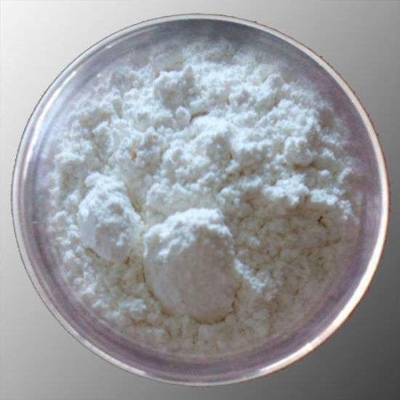-
Categories
-
Pharmaceutical Intermediates
-
Active Pharmaceutical Ingredients
-
Food Additives
- Industrial Coatings
- Agrochemicals
- Dyes and Pigments
- Surfactant
- Flavors and Fragrances
- Chemical Reagents
- Catalyst and Auxiliary
- Natural Products
- Inorganic Chemistry
-
Organic Chemistry
-
Biochemical Engineering
- Analytical Chemistry
- Cosmetic Ingredient
-
Pharmaceutical Intermediates
Promotion
ECHEMI Mall
Wholesale
Weekly Price
Exhibition
News
-
Trade Service
Abnormal blood lipids are one of the most important risk factors for atherosclerosis.
, the blood lipid management status of patients with acute coronary syndrome in China is not ideal, and the compliance rate is insufficient.
, the Chinese Physicians Association Cardiovascular Physicians Branch issued a consensus on the clinical pathway of blood lipid management in patients with acute coronary artery syndrome.
consensus on target targets for lipid-control intervention recommended secondary prevention in patients with acute coronary syndrome, recommended bad cholesterol (LDL-C) levels of 1.8 mmol/L, and a ≥50% decrease from baseline levels.
treatment target for patients with acute coronary syndrome combined with high-risk factors was LDL-C-lt;1.4 mmol/L, which was ≥50% lower than the baseline level.
high-risk factors include relapsed atherosclerosis cardiovascular events, coronary artery multiple vascular lesions, diabetes, heart, brain or exovascular bed atherosclerosis cardiovascular disease, and LDL-C levels ≥ 4.9 mmol/L.
recommend screening for Lp(a) levels in patients with acute coronary syndrome, and blood lipid management in those with elevated Lp(a) levels.
the consensus recommendation of acute coronary syndrome combined with high-risk factors, similar to those in the ultra-high-risk group recommended by experts on reducing cardiovascular events in the Chinese Cholesterol Education Program.
1, acute coronary syndrome combined with high-risk factors patients with blood lipid management acute coronary syndrome combined with high-risk factors patients urgently need to strengthen blood lipid management, so this consensus only for this type of patients developed a blood lipid management path.
2, acute coronary syndrome did not combine high-risk factors in patients with LDL-C level <1.8 mmol/L, if the regular use of statins (4 weeks and above) before hospitalization, it is recommended to strengthen diet and other lifestyle interventions, while adjusting medication according to the actual situation;
those with LDL-C levels ranging from 1.8 to 3.4 mmol/L, if statins are taken regularly before hospitalization, it is recommended to use other fat-lowering drugs (e.g., folding meth or PCSK9 inhibitors);
LDL-C levels >3.4 mmol/L, statin monodes or statins combined with non-statin lipid-lowering drugs (e-folding mebu and/or PCSK9 inhibitors) are recommended.
3, statin insatiable patients: it is recommended to directly enable non-statin antilipidant statin resistance to meet the following criteria: (1) can not withstand at least two statins, one of which is the daily use of the lowest starting dose of statins, the other One is statin for any dose; (2) discomfort after statin treatment or abnormal laboratory test results; (3) statin-related adverse reactions are reversible, reduced dose or deactivation symptoms are alleviated or improved, and re-medication may occur.
for patients with statin insatiability, it is recommended to directly enable non-statin lipid-lowering drugs.
4, medium-strength statins for commonly used dosing strength generally recommended medium-strength statins for China's acute coronary syndrome patients with blood lipid management of common administration strength.
patients with combined drug use should pay close attention to the safety of their medication, follow-up routine monitoring of liver enzymes, myoenzyme elevation.
is recommended for PCSK9 inhibitors, Alisiyo monoanti or Eloyo monoantigen.
for patients with elevated merging triglycerides, it is recommended to use beta, nioic acid, or omega-3 fatty acid drugs to reduce triglyceride levels.
For patients with elevated Lp(a) levels (≥30mg/dl) and LDL-C levels ≥1.8 mmol/L (70 mg/dl), regular use of statins is still not up to standard and priority can be given to PCSK9 inhibitors.
5, drug adjustment and treatment time When adjusting the type or dose of lipid-lowering drugs, blood lipid levels should be reviewed within 4 to 6 weeks of treatment, and the treatment plan should be adjusted again according to the standard conditions.
such as LDL-C <0.4 mmol/L, the medication should be adjusted according to the actual situation, and pay close attention to the changes in blood lipids.
considering that patients' LDL-C levels need to be met in the long term, in order to avoid a rebound in fat-lowering effects, the order of suspension should be considered according to the reduction of LDL-C levels by various drugs.
and prevention of cardiovascular events require long-term and sustained medication.
patients with acute coronary syndrome are discharged from the hospital, follow-up is recommended every 4 to 6 weeks, after which, if there are no special circumstances and blood lipids meet the standard, it can be changed to 1 follow-up every 6 to 12 months.
follow-up examination items mainly include blood lipids, liver function, crea acid kinase and so on.
Consensus points out that the lack of awareness of long-term blood lipid management in patients with acute coronary syndrome is the main reason for their low blood lipid compliance rate and poor treatment compliance, and it is especially necessary to educate patients and/or escorts about health and help patients change their bad life behavior and do a good job in secondary prevention.
patient education and evidence-based cardiac rehabilitation should be carried out throughout the treatment process, with regular or as-needed individual arrangements to address the problem in a targeted manner.
source: 1 . . . . . . . . . . . . . . . . . . . . . . . . . . . . . . . . . . . . There is an expert consensus on the clinical pathway of blood lipid management in patients with acute coronary artery syndrome. China Circulation Magazine, 2020, 35:941-947. DOI:10.3969/j.issn.1000-3614.2020.10.001. China Cholesterol Education Program Lipid Therapy Reduces Cardiovascular Event Expert Recommendations (2019). Chinese Journal of Internal Medicine, 2020, 59 (1): 18-22.MedSci Source: MedSci Copyright Notice: All text, images and audio and video materials on this website that indicate "Source: Mets Medicine" or "Source: MedSci Original" are owned by Mets Medical and are not authorized to be reproduced by any media, website or individual.
all reprinted articles on this website are for the purpose of transmitting more information and clearly indicate the source and author, and media or individuals who do not wish to be reproduced may contact us and we will delete them immediately.
at the same time reproduced content does not represent the position of this site.
leave a message here







